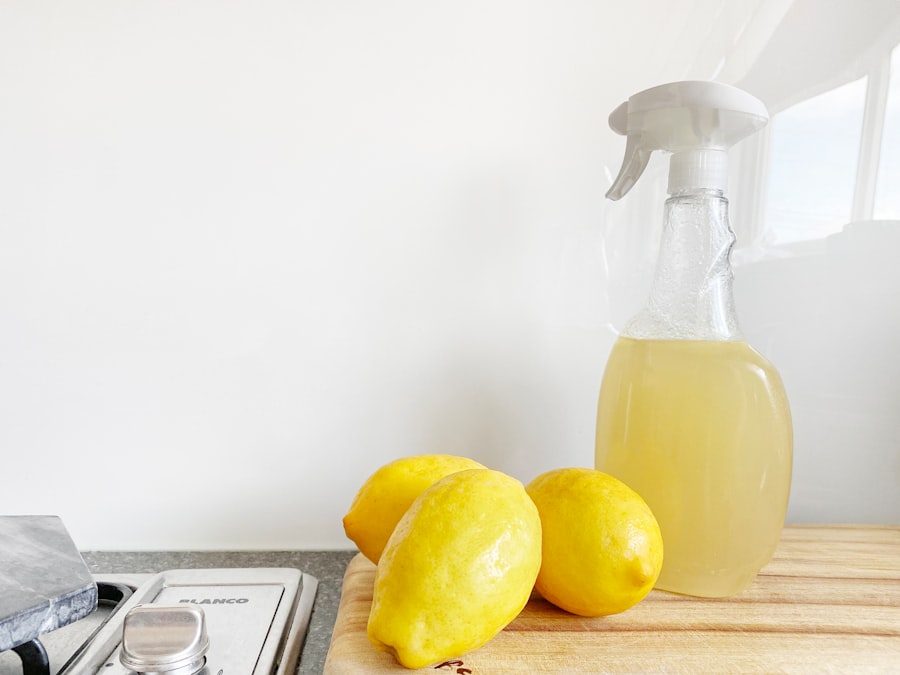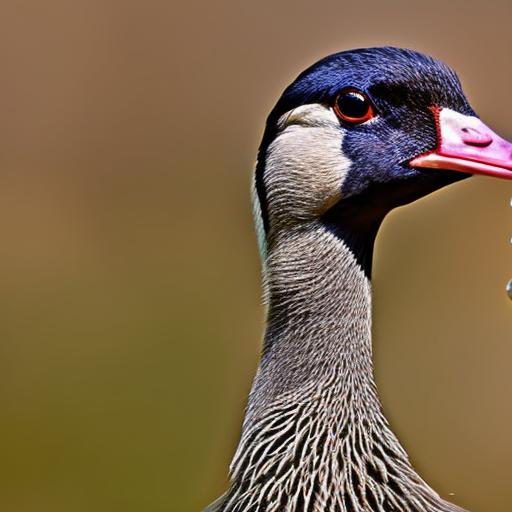Using grape juice as a goose repellent has become increasingly popular among homeowners and farmers as a natural and effective method of goose control. Geese can cause damage to lawns, gardens, and crops, and their droppings can create unsightly messes. Traditional methods of goose control, such as decoys and noise makers, can be expensive and may not always be effective. Grape juice offers a non-toxic alternative that is both affordable and easy to use.
Key Takeaways
- Grape juice can be used as a natural and effective goose repellent.
- The acidity and tannins in grape juice make it unappealing to geese.
- Apply grape juice to grassy areas where geese tend to congregate.
- Grape juice is a safer and more environmentally friendly option compared to traditional methods of goose control.
- Grape juice may need to be reapplied every few days for maximum effectiveness.
The Science Behind Grape Juice’s Effectiveness
Grape juice contains chemical compounds that make it unappealing to geese. One of these compounds is methyl anthranilate, which is found in the skin of grapes. This compound has a strong odor that is unpleasant to geese and acts as a deterrent. Studies have shown that when grape juice is applied to areas where geese are present, they are less likely to stay in those areas.
In a study conducted by the University of California, researchers found that grape juice was an effective goose deterrent. They applied grape juice to grassy areas where geese were known to congregate and found that the geese were less likely to stay in those areas. The researchers concluded that grape juice could be a viable option for homeowners and farmers looking to control goose populations.
How to Properly Apply Grape Juice
To properly apply grape juice as a goose deterrent, follow these steps:
1. Choose a concentrated grape juice that contains methyl anthranilate. This compound is what makes the grape juice unappealing to geese.
2. Dilute the grape juice with water according to the instructions on the bottle. The ratio will vary depending on the concentration of the grape juice.
3. Fill a spray bottle with the diluted grape juice mixture.
4. Spray the grape juice mixture onto areas where geese are present or where you want to deter them from.
5. Reapply the grape juice after rain or heavy dew, as these can wash away the deterrent.
Comparing Grape Juice to Other Methods
When comparing grape juice to other common methods of goose control, such as decoys and noise makers, there are pros and cons to consider. Decoys can be effective in some cases, but they require regular maintenance and may not always fool the geese. Noise makers can be loud and disruptive, but they may not always deter the geese from returning.
Grape juice offers a natural and non-toxic alternative that is affordable and easy to use. It does not require regular maintenance like decoys, and it does not create noise pollution like noise makers. However, grape juice does need to be reapplied after rain or heavy dew, which can be a drawback for some users.
Potential Drawbacks of Using Grape Juice
While grape juice can be an effective goose deterrent, there are some potential drawbacks to consider. One drawback is the possibility of staining or damaging surfaces. Grape juice can leave behind a residue that may be difficult to remove from certain materials, such as concrete or fabric. It is important to test the grape juice on a small, inconspicuous area before applying it to larger surfaces.
Another drawback is the need for frequent reapplication. Grape juice can be washed away by rain or heavy dew, so it is important to reapply it regularly to maintain its effectiveness. This may require more time and effort compared to other methods of goose control.
Tips for Maximizing Effectiveness

To maximize the effectiveness of grape juice as a goose deterrent, follow these tips:
1. Use fresh grape juice. The chemical compounds in grape juice that repel geese may degrade over time, so using fresh grape juice will ensure maximum effectiveness.
2. Apply the grape juice evenly and thoroughly. Make sure to cover all areas where geese are present or where you want to deter them from.
3. Reapply the grape juice after rain or heavy dew. This will ensure that the deterrent is not washed away and remains effective.
4. Consider using other methods in conjunction with grape juice. While grape juice can be effective on its own, combining it with other methods, such as decoys or noise makers, may provide even better results.
How Long Does Grape Juice Keep Geese Away?
The duration of grape juice’s effectiveness can vary depending on several factors. These factors include the concentration of the grape juice, the frequency of reapplication, and the weather conditions. In general, grape juice will need to be reapplied every few weeks to maintain its effectiveness.
Other Uses for Grape Juice in Pest Control
In addition to repelling geese, grape juice can also be used to repel other pests. The same chemical compounds that make grape juice unappealing to geese can also deter other animals, such as deer and rabbits. Grape juice can be sprayed onto plants or applied to areas where these pests are present to keep them away.
The potential for using grape juice in organic pest control is also worth considering. Grape juice is a natural and non-toxic alternative to chemical pesticides, making it a more environmentally friendly option. By using grape juice as a goose repellent, homeowners and farmers can reduce their reliance on harmful chemicals and promote a healthier ecosystem.
Environmental Impact
Using grape juice as a goose repellent has a minimal environmental impact compared to other methods of goose control. Grape juice is a natural and non-toxic substance that does not harm geese or other animals. It also does not contribute to air or noise pollution like some other methods, such as noise makers or chemical pesticides.
By choosing grape juice as a goose deterrent, homeowners and farmers can help protect the environment and promote a more sustainable approach to pest control.
In conclusion, using grape juice as a goose repellent offers a natural and effective method of goose control. The chemical compounds in grape juice make it unappealing to geese, and studies have shown that it can be an effective deterrent. By following the proper application techniques and reapplying after rain or heavy dew, homeowners and farmers can maximize the effectiveness of grape juice as a goose deterrent.
While there are some potential drawbacks to using grape juice, such as the possibility of staining or damaging surfaces and the need for frequent reapplication, the benefits outweigh the drawbacks. Grape juice is affordable, easy to use, and offers a non-toxic alternative to traditional methods of goose control. By choosing grape juice as a goose repellent, homeowners and farmers can effectively manage goose populations while also promoting a healthier and more sustainable environment.
If you’re interested in learning more about geese and their behavior, you might find this article on “How Many Eggs Do Geese Lay?” from Poultry Wizard quite informative. It delves into the breeding habits of geese and provides insights into their egg-laying patterns. Understanding the reproductive cycle of geese can be helpful in managing their population and ensuring their well-being. So, if you’re curious about geese and want to expand your knowledge, give this article a read!
Meet Walter, the feathered-friend fanatic of Florida! Nestled in the sunshine state, Walter struts through life with his feathered companions, clucking his way to happiness. With a coop that’s fancier than a five-star hotel, he’s the Don Juan of the chicken world. When he’s not teaching his hens to do the cha-cha, you’ll find him in a heated debate with his prized rooster, Sir Clucks-a-Lot. Walter’s poultry passion is no yolk; he’s the sunny-side-up guy you never knew you needed in your flock of friends!







